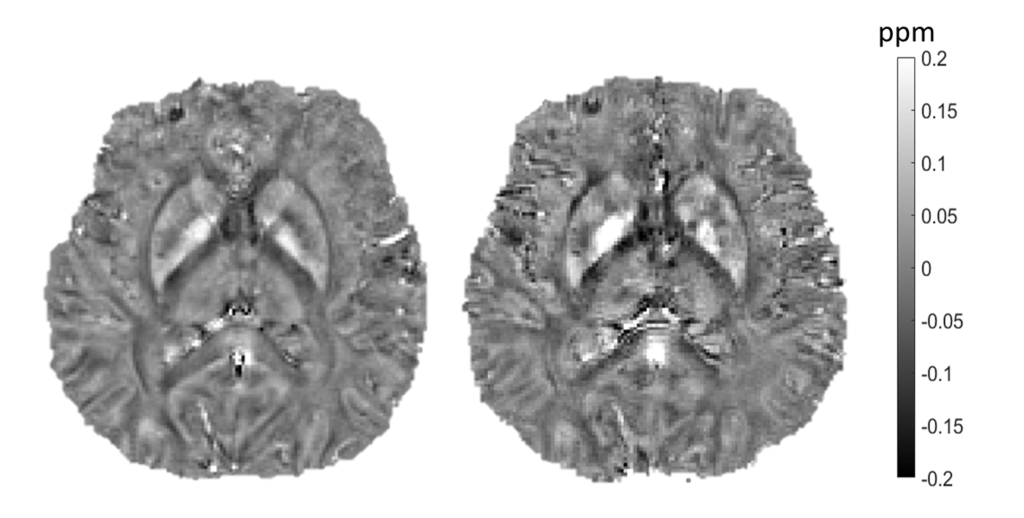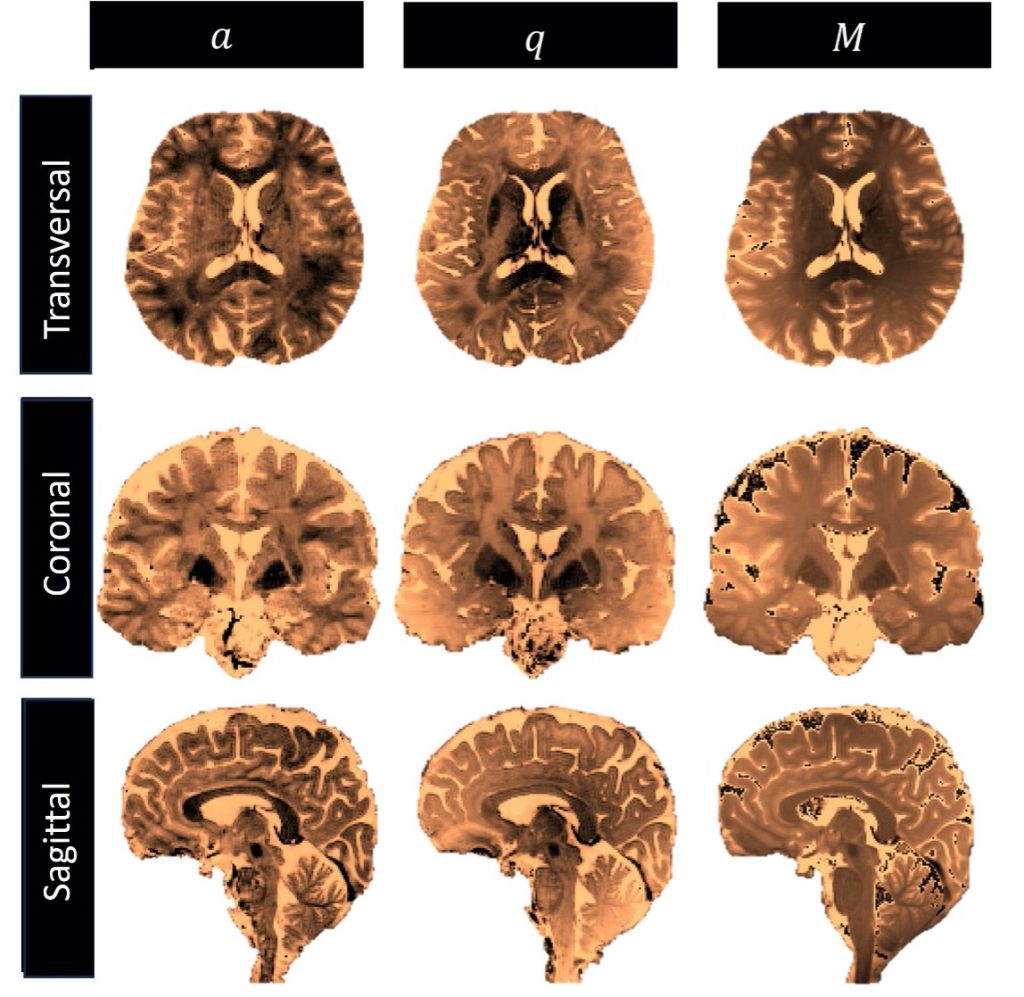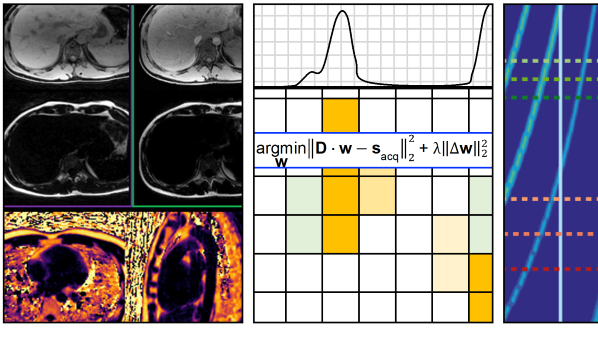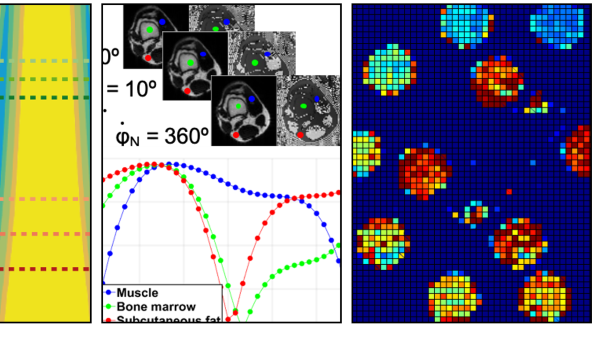Our research
We aim to develop fast and innovative MRI technologies for clinical MRI scanners. Our research ranges from understanding the fundamentals of MRI to the development of advanced MRI processing and reconstruction tools. We benefit from a unique research environment and have access to state-of-the art clinical MRI scanners at various magnetic field strengths (1.5T, 3T, 7T). Our publications page reflects well what we’ve been up to so far.
MRI is a powerful imaging tool that can be used to identify disease biomarkers noninvasively. However, MRI is complex and quantitative information is often confounded by the presence of multiple tissue compartments and magnetic field inhomogeneities that induce signal asymmetries. In our lab we are interested to exploit these signal asymmetries to encode the underlying tissue structure. This will enhance the capability of MRI to extract quantitative information on tissue function and anatomy.
Signal asymmetries?
Yes, signal asymmetries! Specifically those obtained when performing MRI experiments using phase-cycled bSSFP. We have good reasons to believe there is more information encoded within these MRI signals than previously thought, even if they are symmetric. We apply mathematical theory and MRI physics to reveal this information. We also develop acquisition strategies to sample these signals efficiently. What can we do with this?
- Mapping of brain tissue susceptibility at 7T
- Quantification of fat-fraction within tissues such as the liver
- Chemical shift imaging to measure metabolites containing Phosphorus-31
- Quantification of T2 at 7T without SAR problems
- High-resolution anatomical imaging and mapping of cartilage
- Quantitative mapping of T1 and T2 in the presence of cardiac implants

International and Industry Collaborations
We believe in open science to advance MRI knowledge in a collaborate effort and to disseminate our imaging technology to clinical sites.
Therefore we work closely together with scientists from Siemens Healthineers, Dr. Gabriele Bonanno and Dr. Tom Hilbert.
We actively collaborate with Prof. Li Feng at Mount Sinai in New York, Dr. Carl Ganter from the University of Technology in Munich, Dr. Rahel Heule at the Max Planck Institute in Tübingen, Prof. Nicole Seiberlich and Dr. Gastão Lima da Cruz at the University of Michigan, Prof. Benedetta Franceschiello at the HES in Sion (CH), and Dr. Anne Slawig at the Department of Radiology in Halle.
Undergraduate and Graduate student projects
Students interested to work on MRI are welcome to contact Prof. Jessica Bastiaansen. Regardless of your past experience with MRI, we are quite certain you will find something that resonates. More details can be found on the Current Projects page, which is updated frequently. Example of available MSc thesis project titles:
- Next-generation biomarker quantification in the human brain with innovative MRI techniques at ultra-high magnetic field.
- Revolutionizing the assessment of cardiac function with cutting-edge Cine MRI techniques
- Novel methods for white and grey matter-specific biomarker quantification at 3T and 7T
- The influence of fat signal suppression on biomarker quantification with MRI
- Implementing and evaluating a vendor-independent 3D-radial sequence in an open-source framework
- Building a neural network for accurate quantitative MRI maps
- Mathematical modeling in MRI for multi-parameter estimation
- Solving MRI inversion problems for robust quantitative parameter extraction



